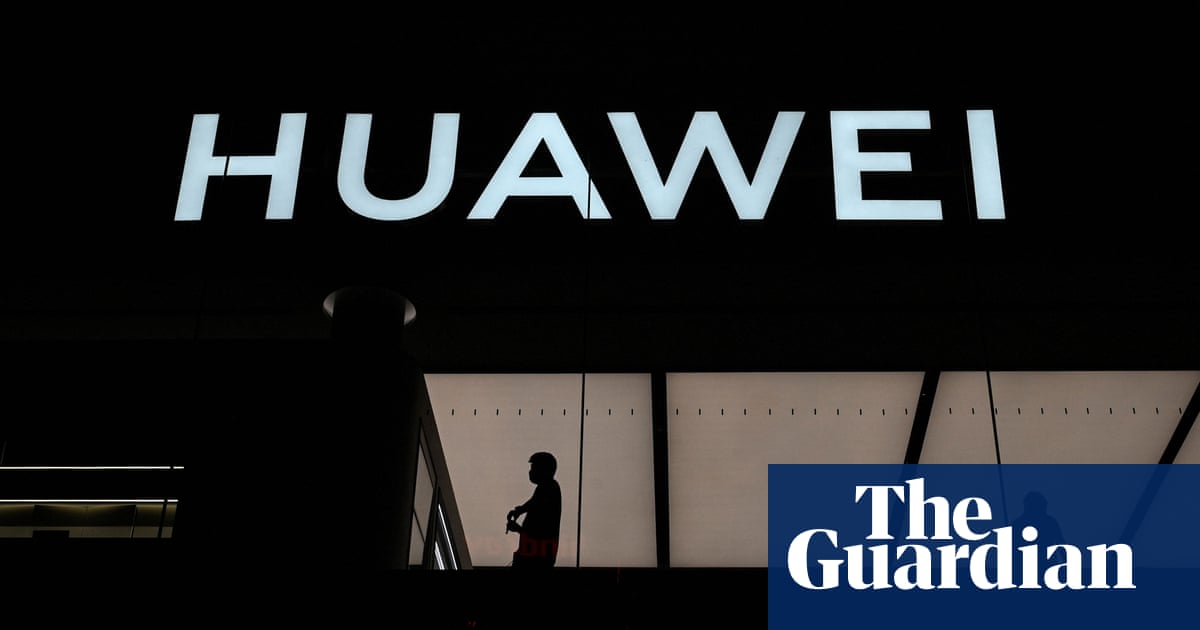Solomon Islands secures $100m China loan to build Huawei mobile towers in historic step
The Solomon Islands government has secured a $66m (A$96m) loan from China to build 161 mobile communication towers, which will be built and supplied by Chinese telco giant Huawei.
It is the Pacific country’s first loan from Beijing since it switched diplomatic allegiance from Taiwan to China in 2019 and is a significant bilateral development between the two countries, which signed a secretive and controversial security deal earlier this year.
The Huawei move was celebrated by the Solomon Islands government as “a historical financial partnership” between the two countries that would “work closely to ensure the successful implementation … of the project”.
The loan will come from the Exim Bank of China, which has offered a 1% interest rate.
The use of Huawei in building and supplying the towers will alarm some in Australia, which has banned Huawei from government contracts to build infrastructure in Australia, citing security concerns.
Huawei has become something of a global pariah amid security concerns over its links to the ruling Chinese communist government. In 2019, the US issued a ban on sharing technology with Huawei. In 2020, the British government issued an order that telecoms providers would have to stop installing Huawei equipment in the country’s 5G network.
In 2018, before Solomon Islands switched diplomatic alliance from Taiwan to China, Solomon Islands awarded a contract to Huawei to build an underwater telecommunication cable network. The Australian government intervened, offering to jointly fund the construction of the cable, which the Solomons government accepted.
The Solomon Islands government has announced it hopes to install 48% of the infrastructure by November 2023 when it is scheduled to host the Pacific Games, a flagship policy for the government led by prime minister Manasseh Sogavare.
“This will help people in rural areas to enjoy the Games, even if they don’t come to Honiara,” said McKinnie Dentana, permanent secretary of the ministry of finance.
Hosting of the Pacific Games was the reason offered by Sogavare for delaying national elections, scheduled for mid-2023, with the prime minister saying the country did not have the capacity to hold both elections and the sporting event in the same year.
Solomon Islands has less than 30% internet penetration and the government has announced its intention to increase this number dramatically, so that public service institutions, schools and clinics around the country can access internet.
A majority of the existing mobile towers in the country are owned by Solomon Telekom Company Limited (STCL). Solomon Islanders own a majority share of the STCL (97.32%) through the National Provident Fund.
The government has said that the 161 Huawei towers, will be owned by another company on behalf of the government and that they are in discussions with STCL, which it said will be a key operating partner in this undertaking.
The government hopes to repay the loan within 11 years, despite the concessional loan repayment being for 20 years.
“The independent review of the [Solomon Islands National Broadband Infrastructure Project] showed that the project would generate sufficient revenues for the government to fully repay both the principal loan amount and interest costs within the loan period”, the government statement said.
As of December 2021, the government’s debt stock was 15% of GDP. Once work on the Tina Hydro Project kicks in, the government’s debt to GDP will reach 30%. With the inclusion of the concessional loan from the Exim Bank of China, this will further increase the government debt to GDP percentage. The recommended debt level for Solomon Islands is 35% of GDP.
A 2019 report by the Central Bank of Solomon Islands warned the country will not be able to absorb any borrowing from China, once it decided to switch.













